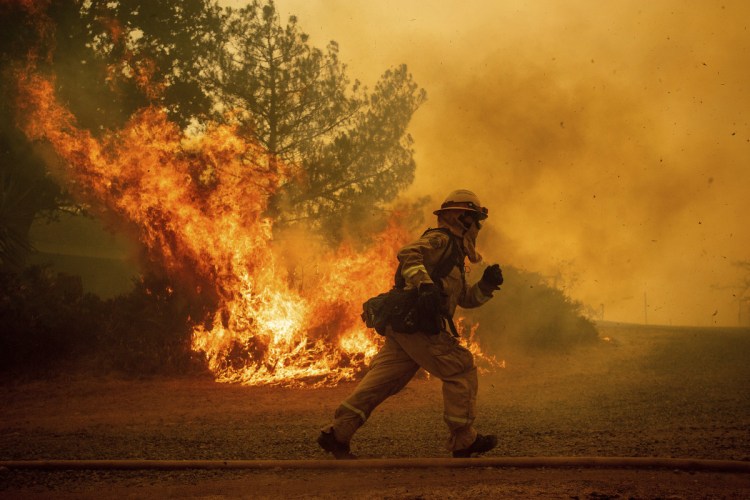BOISE, Idaho — Randy Brooks’ son had a request three years ago: What could his dad do to make wildland firefighting safer?
To Brooks, a professor at the University of Idaho’s College of Natural Resources who deals with wildland firefighting, it was more of a command.
His son, Bo Brooks, is a wildland firefighter who a few days earlier during that 2015 fire season fled a wall of flames that killed three of his fellow firefighters in eastern Washington.
The result of the conversation was an online survey that drew some 400 firefighters who mostly identified mental and physical fatigue as the primary cause of injuries to firefighters who are often confronted with a changing, dangerous environment.
But a self-selecting online survey is not necessarily representative of what’s happening in the field. So Randy Brooks decided to apply some science.
That led to an ongoing health-monitoring study involving wrist-worn motion monitors and body composition measurements that last year found health declines and deteriorating reaction times among firefighters as the season progressed.
“A lot of them face peer pressure to perform all the time,” Brooks said. “Others feel pressured to protect natural resources and structures at all costs.”
Some 19,000 firefighters are currently in the field fighting nearly 40 large wildfires. Fourteen firefighters have died this year as wildfires have scorched about 3,500 square miles and destroyed some 3,000 homes.
The study last year found firefighters lost muscle mass but gained fat based on body compositing testing before and after the season.
The firefighters also wore a wrist device called a Readiband from a company called Fatigue Science. The device keeps track of how many hours of sleep a person gets. Formulas developed by the U.S. military then calculate fatigue, based on a lack of sleep. That’s used to predict alertness and reaction times, which get worse as fatigue levels rise.
Firefighters in the field can get as little as six hours of sleep or less each night. The devices found that not only did reaction times falter as firefighters remained longer on a fire before getting a mandatory break, Brooks said, but firefighters also tended to take longer to recover as the season progressed. Sometimes, fatigue levels reached a level that suggested reaction times slowed down so much it took firefighters twice as long to react.
Brooks said his initial thoughts are that wildland firefighters might need better nutrition to stay fit and mentally sharp. But last year’s study had only nine firefighters. Brooks this year has expanded the study to 18.
Send questions/comments to the editors.



Success. Please wait for the page to reload. If the page does not reload within 5 seconds, please refresh the page.
Enter your email and password to access comments.
Hi, to comment on stories you must . This profile is in addition to your subscription and website login.
Already have a commenting profile? .
Invalid username/password.
Please check your email to confirm and complete your registration.
Only subscribers are eligible to post comments. Please subscribe or login first for digital access. Here’s why.
Use the form below to reset your password. When you've submitted your account email, we will send an email with a reset code.